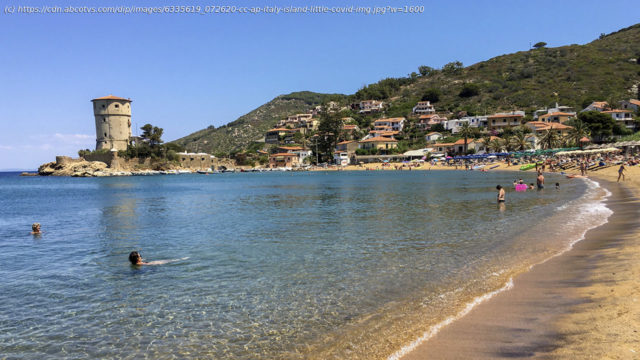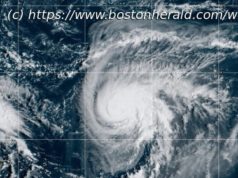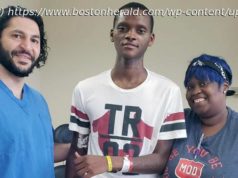Italian scientist Paola Muti was stranded on a tiny island where mainlanders sick with COVID-19 came ashore but no islanders apparently took ill.
GIGLIO ISLAND, Italy — Stranded on a tiny Italian island, a cancer researcher grew increasingly alarmed to hear that one, and then three more visitors had fallen ill with COVID-19. Paola Muti braced for a rapid spread of the coronavirus to the 800 closely-knit islanders, many of whom she knows well. Her mother was born on Giglio Island and she often stays at the family home with its charming view of the sea through the parlor’s windows. But days passed and none of Giglio’s islanders developed any COVID-19 symptoms even though the conditions seemed favorable for the disease to spread like wildfire. The Gigliesi, as the residents are known, socialize in the steep alleys near the port or on the granite steps that serve as narrow streets in the hilltop Castle neighborhood, with densely packed homes built against the remnants of a fortress erected centuries ago to protect against pirates. Dr. Armando Schiaffino, the island’s sole physician for around 40 years, shared Muti’s worry that there would be a local outbreak. »Every time an ordinary childhood illness, like scarlet fever, measles or chicken pox strikes, within a very few days practically all get » infected on Giglio, he said in an interview in his office near the port. Muti, a breast cancer researcher at the University of Milan where she is an epidemiology professor, decided to try to find out why it wasn’t happening this time. Were residents perhaps infected but didn’t show symptoms? Was it something genetic? Something else? Or just plain luck? »Dr. Schiaffino came to me and told me, ‘Hey, look, Paola, this is incredible. In this full pandemic, with all the cases that came to the island, nobody is sick.’ So I said to myself: ‘Right, here we can do a study, no? I am here,' » Muti said. By then, Muti was trapped on the island by Italy’s strict lockdown rules.






